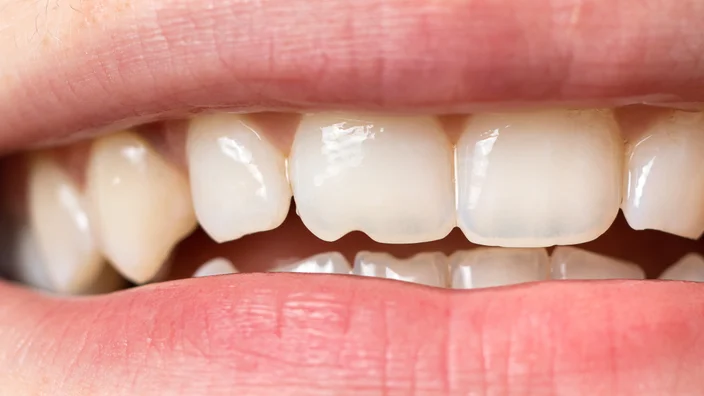Teeth color plays a significant role in the overall aesthetic of one’s smile, influencing both appearance and confidence. In Dubai, where beauty and self-care are highly emphasized, a bright, white smile is often seen as a symbol of health and attractiveness. While factors like oral hygiene, genetics, and lifestyle habits are well-known contributors to teeth discoloration, many may not realize that vitamins and nutrition can also have a profound impact on the color of teeth. This article explores What Vitamin Deficiency Causes Yellow Teeth color and how residents of Dubai can harness the power of proper nutrition for a radiant smile.
The Role of Vitamins in Teeth Health
Teeth, like the rest of the body, rely on a range of nutrients to stay healthy. Vitamins are essential for maintaining the integrity of tooth enamel, preventing discoloration, and promoting overall dental health. Different vitamins contribute in various ways, some by directly affecting the appearance of teeth and others by supporting the health of the gums and underlying tissue. Let’s explore how certain vitamins affect teeth color and health.
Vitamin D: The Enamel Protector
Vitamin D is vital for the absorption of calcium, which is a critical mineral for strong teeth. Without sufficient vitamin D, calcium cannot be properly absorbed into the body, leading to weakened enamel. Enamel is the outermost layer of the tooth, responsible for its natural color and protection against stains. Inadequate enamel can result in yellowing or thinning of teeth, making them more susceptible to stains from food, beverages, or smoking.
Dubai’s sunny climate provides an excellent opportunity for the natural production of vitamin D. However, factors like spending too much time indoors or using sunscreen to protect against UV rays can sometimes limit vitamin D synthesis. To boost vitamin D levels, individuals can also consume foods like fatty fish, fortified dairy products, and eggs.
Vitamin C: The Gum Defender
Vitamin C is well-known for its ability to boost the immune system and promote skin health, but it also plays a crucial role in dental health. It helps strengthen the gums, prevent gum disease, and enhance the body’s ability to repair tissues. Healthy gums are essential for maintaining the overall appearance of the teeth. When gums are weakened or infected due to a vitamin C deficiency, they can recede, making teeth appear longer and more yellow.
Vitamin C is abundant in citrus fruits, strawberries, bell peppers, and leafy greens. Consuming these vitamin C-rich foods can contribute to maintaining healthy gums and preventing discoloration.
Vitamin A: The Enamel Builder
Vitamin A is another important nutrient that supports healthy teeth. It contributes to the production of salivary flow, which is essential for maintaining the enamel and preventing dry mouth. A healthy amount of saliva helps to neutralize acids that may cause staining and damage to enamel. Furthermore, vitamin A supports the regeneration of tissues, which is important for overall oral health.
Foods like carrots, sweet potatoes, and leafy greens are rich in vitamin A and can help keep the enamel intact, ensuring that teeth maintain their natural brightness.
Vitamin K: The Bone Health Enhancer
Vitamin K is often associated with bone health, but it also plays a significant role in supporting teeth. It aids in the mineralization process of bones and teeth, ensuring that they remain strong and resistant to wear and discoloration. A deficiency in vitamin K can lead to weaker teeth that are more prone to cavities and stains.
Green leafy vegetables, such as spinach, kale, and broccoli, are great sources of vitamin K and should be part of a balanced diet for those seeking to improve their teeth color and strength.
The Connection Between Vitamin Deficiencies and Teeth Discoloration
In Dubai, a modern city with diverse dietary habits, vitamin deficiencies can be a common cause of poor oral health. While many people focus on teeth whitening treatments to brighten their smile, addressing underlying nutritional deficiencies can often lead to more sustainable results. A deficiency in key vitamins can lead to various dental issues, including discoloration, weakening of enamel, and increased susceptibility to plaque buildup.
For example, a lack of vitamin D can result in enamel erosion, which exposes the underlying yellowish dentin, causing teeth to appear discolored. Similarly, a lack of vitamin C can contribute to gum disease, leading to receding gums and a more aged appearance. When proper vitamins are incorporated into a balanced diet, it can significantly improve both the color and health of your teeth.
Maintaining Optimal Vitamin Levels for Healthier Teeth
In addition to consuming a vitamin-rich diet, Dubai residents can benefit from a variety of ways to ensure they’re meeting their nutritional needs. Many choose to supplement their diet with multivitamins or specific vitamin supplements, especially if they have dietary restrictions or limited access to certain foods. Regular dental checkups are also important in assessing overall oral health and addressing any issues that may arise due to vitamin deficiencies.
A well-rounded diet should include a variety of fruits, vegetables, lean proteins, and dairy products, all of which provide essential vitamins that contribute to brighter, healthier teeth. Drinking plenty of water and practicing good oral hygiene, such as brushing and flossing, is also crucial to maintaining the benefits of proper nutrition.
Conclusion
In the pursuit of a radiant, white smile in Dubai, many people focus on cosmetic treatments such as teeth whitening. However, the role of vitamins in maintaining teeth color and overall oral health cannot be overlooked. A balanced intake of vitamins like D, C, A, and K can help preserve enamel, strengthen gums, and prevent discoloration. Residents of Dubai, with their access to abundant sunshine and a wide variety of nutritious foods, have the unique advantage of supporting their oral health naturally. By incorporating vitamin-rich foods into their diet and considering supplementation where necessary, individuals can significantly improve the appearance of their smile while promoting long-term dental health.





Comments